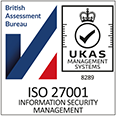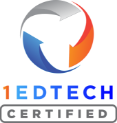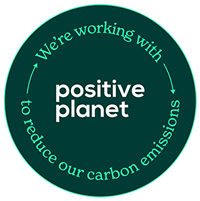Rachel Challen from Nottingham Trent University on ‘Learner Journeys’. This recording is from our 2022 MiniBash community event which was hosted in Birmingham, England. Videos are for educational personnel only and require a live educational email to watch. You can read the video transcript below.
Transcript:
So thank you for having me.
I am Rachel Challen. I work at Nottingham Trent University in the School of Arts and Humanities. I’m a principal lecturer there.
And my presentation is called two thousand and forty two thousand and twenty two, eighteen years of Pebble-ishness.
You’re welcome to that word.
I nearly pulled it off.
It’s obviously a cross between pebble and delicious. You’re welcome. So what I want to go through today so it’s all about the learning journey and and it’s got my personal experience but my personal experience because of the work I did with PebblePad back in the day is parallel.
No. I didn’t.
Although, we could coin that as a notation.
PebblePad back in the day. So it’s a parallel experience for me. It’s about what has impacted on me personally and what I’ve seen has impacted on people around me and the stuff I’ve been doing.
I’ve been given fifteen minutes to talk about eighteen years. So some some things will be light on detail but anything that you want to know more about I’m happy to talk about afterwards.
So I thought it would be useful to just contextualise life before Pebble.
And and I had a career change in 2002, did a year teacher training.
Part of that was developing resources for students and as we were doing it it was quite old pedagogy, quite old techniques and I thought there must be more.
And luckily in two thousand and four I then joined Pebble Learning and joined Toni Shane and Collin. And and we did have a we we had a Christmas event as well with four of us. We did. It was great.
And there’s so much to tell you about what happened in those years because PebblePad the world was just starting to talk about e portfolios but in a different way very different to to the aspirations that Shane and Colin had.
And The PebblePad was fully based in pedagogy, fully had students at the center.
And for me, PebblePad really changed the educational landscape of what we were trying to do because it really challenged people’s thoughts processes. It was like this new tool. It’s not net it’s never just about the tool. It’s about people’s ideas about the tool, about generating conversation, about challenging people.
So one of the ways that we did this was through one of the first projects for Jisc at of e portfolios in the UK called Epistle.
And we looked at the transition what the barriers and challenges would be from secondary school to FE to HE.
And then also the tiny chairs is because we threw in a year six primary school as well and that was interesting when Shane came to visit.
So we kind of looked at the whole lot of that and and there was A lot of threshold moments for me in that process.
Things that I didn’t know, things that hadn’t appreciated seeing PebblePad being used. In lots of different ways by lots of different people with different motivations.
But it wasn’t just about the platform. We were testing and stretching student expectations, what they thought their learning should be, what their ownership of their learning should be, what impact they could have on their learning. And we were challenging old pedagogy because this was a time of change. This was a time where, you know, the this this very didactic way of teaching was was still there and we were just trying to change that and bring a different aspect in there.
So obviously there were bad moments in this as well. Remember hiding in a cupboard in one secondary school.
Because some of the technology didn’t work, not PebblePad.
And so and that that project and I’m spending more time on that project than I will on the others because it was so important at that time. Kind of laid the foundations down for everybody.
And what we all imagine any portfolio should be. And obviously, PebblePad are not any portfolio anymore. It’s moved on itself as it should do.
I wrote about this in my first portfolio which as Steve said, I actually used as a as a learner because I needed to. Because I’d was telling all these people with the impact, telling all these people the value. And actually I hadn’t used it in anger myself. So I created my a membership portfolio, submit it and achieve that.
So that was my first kind of learner experience.
But as my time at pebble HQ came to an end The one thing that I wasn’t gonna miss was the character building events that Shane used to put on.
And we really were that wet.
So so moving on, I then moved into the University of Wolverhampton.
And my next adventure was about uncharted waters which is a really bad pun on the fact that I worked with an account see much of.
There’s more.
So This was a module that was really unpopular with students. They were on a business degree but they had to do this module. It’s mandatory.
There was a really low pass rate, really low attendance rate.
The the module was difficult.
Because they were learning something from scratch and, you know, and it’s a very hard subject. Not in a difficult way but in in a difference to a soft skill. So we started to use PebblePad in a really different way and and It was a real departure for is about how to put informative points. Make sure that students could answer those questions even if they Even if they didn’t come, they could really support each other in themselves and the tutors could really see who was engaging. So we did formative activities every week. There was a random sampling every week. Students were really kept on their toes.
And This was the first year it was used achieved a really high pass rate which was a really success and really showed the impact. The students still did lack accountancy but you can’t win everything.
And And then for me, I resubmitted my CMOs. It’s a three year three year resubmission.
And these pots of paint just they’re kind of for me, they were just when I was putting everything in my PebblePad. I didn’t know what I needed in there, didn’t know what I wanted in there. So I just put everything in. I’m not very good at tagging so it’s not as organised as these pots of paints as a bit of a mess.
But everything that I thought might be interesting or useful or important for me, I put in there. So I was just carrying on doing that.
So after Wolverhampton, I went to Loughborough College of further in higher education where we made pleasure judgement.
So pledge was personal learning environment developing graduate employability and it was a scaffolded portfolio.
Where we developed personal, professional employability attributes.
Which meant that they could the students could take learning that was different to the transcript that they got saying that they passed course. It was different to the transcript that they got from the here records. It was different. It wasn’t just saying what they’ve done or what they’d achieved. It was saying how they’d achieved it and why they’d achieved it and actually what were the next steps for them. So it’s really important to have that really extra bit on there.
And unfortunately I left the college for the project concluded and but the impact was still high watch this space.
And as before, I just carried on using Pebble as a learner. Just putting my thoughts in putting my reflections in.
Not really knowing what I was doing with it all. Just knowing that actually it was important for me to do.
But nothing else at that point but just for me.
After Loughborough, went to Nottingham Trent University.
Started in 2017.
And you know I said that the impact of Pebble was huge. And that’s because it kind of turned into go places and go places was a scaffolded and three year portfolio that the students received in level four and was prepopulated with everything that they needed for the next three years. And it was designed fully for employability and it was it was there were quizzes in there to get them to identify skills that they were missing.
Skills that they would have to action plan to build up.
And The reason it was better than pledge is because it was designed by students.
So students were very involved in it at that point. So we had some level six students who had already got to the end of their studies and we’re saying I really want to do this. This would have been really important for us because in level six, I don’t know about the universities. But in level six, our students have to undertake a synoptic type assessment. Which is talking all about themselves.
So it’s not about the subject and what they’ve learned about the subjects that what have they learned about themselves and what are they going to take forward. I can’t think of any better at all and to do that in. So the the level six students recorded themselves talking to the level four students telling them how important it was that they do this. And how they wish that have known about this at level four but actually if they did know about level four, they wouldn’t have wanted to do it because level four is level four. So it was a real It’s real effort by the students to get their peers involved which was lovely.
And actually what we found from that that not only was the level six an optic assessment grades higher which was obviously great but the stories were richer and that’s the important bit. Though at the students were reaching deeper inside themselves and really exploring what they wanted to take whatever pathway they they were going to do after university wherever they were gonna go. They were reaching deeper in themselves to try and articulate that. And for me that was the value and the impact of that was immense.
And then finally, my perseverance paid off putting things into my little buckets and and I managed to achieve my senior fellowship and my senior CMALT.
Both of those were written in PebblePad and submitted using PebblePad using the same resources but with a different story. For the different audiences. So the same asset could be used in both places but actually one was talking about leadership and one was talking about classroom use perhaps.
Because it was the use of that and I thought and I’d forgotten what I put in my portfolio for all those years. I’d forgotten. And I went back and I was like, oh, I can use this. This is really good.
I’d forgotten. And I didn’t realise that I had this lens on teaching. I had no idea what my lens was when I started. But now I’m here.
I understand that my practice is grown and I can see it growing because I’ve been putting these things in and reflecting.
So I was able to articulate those that in both of those applications.
Finally, I’m at Nottingham Trent University and the eagle eyed amongst you will think the same place. It is. It’s actually the same school and almost the same desk.
It’s a different title.
And actually I’ve now come to a place where I’m I actually love the the job I’m in.
So learning and teaching manager which is broader than just digital.
Although I am a learning technologist at heart.
So what we did at Nottingham, what we’re going to do at Nottingham Trent.
Is something around interdisciplinary practice.
And This is I think it’s probably the biggest project I’ve ever used Pebble for.
It’s a we have joint honours in our arts and humanities. We have seventeen courses of joint honours which come under a joint joint honours framework.
And what we have found in the past and and which is why we’re redesigning now is it’s no community and belonging for those students. They don’t feel that they they study two subjects, they study history, it’s English, they don’t study English and history.
So a real challenge for us is about building that community.
And so we’ve got this project underway. It’s called Calab at the moment.
We don’t like the word when it’s got another title. That’d be great.
And it’s three modules, one at level four, one at level five, one at level six, which are going to be core from all our students.
That’s the place where we’re going to build into disciplinary.
So the the the place that they’re going to be together with the people on their course because sometimes even when they do a subject, they’ll be with single honours students.
So they’re they’re kind of ownership identities in there.
We are putting in sustainability, the STG goals, work like experience at NTU, we have to give all undergraduate two hundred and forty hours of work like experience over three years. Gonna involve enterprise education, personal tutoring, quality diversity. So it’s going to be massive.
And we’ve got everybody in the university that that leads on those on the working group with us to kind develop it.
So that’s what’s coming up.
And and also I also managed to use my buckets to achieve my principal fellowship and also senior fellowship of Cedar. So again almost the same things with a different slant a different reflection, a different articulation, and a different presentation.
And and at the university of Nottingham with this group here, we are now you reinvigorating our e portfolio steering group which I’m going to chair.
Okay.
I’ve not looked at Toni deliberately.
So here we are.
At 2022, And I just want to say one thing is that what’s clear to me, Pebble for me is six degrees of knowledge separation because whatever you put in there the path become clear. The connections become logical.
Things come to life and and I’ve seen how positively Pebble has impacted on so many people including myself. And categorically, I would not be in jokes aside. I would not be where I was if it wasn’t for for Pebble and this gang. So Pebble, happy birthday.







